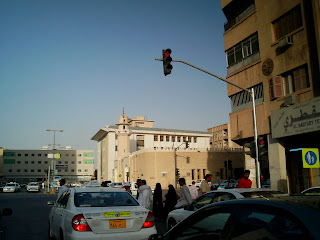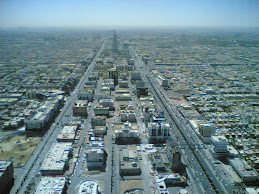بسم الله الرحمن الرحيم
“Ordain for me whatever is good for me, and make me satisfied with it”
What is Istikhaarah du’a?
Also spelled istikhara, istikharah and istikhaara.
Istikhaarah du’a is the du’a (or supplication) of guidance – we pray 2 raka’at of prayer and after that recite the du’a taught to us by the Prophet Muhammad (صلى الله عليه و سلم ) imploring Allah, عز و جل, for guidance on that matter. Istikhaarah is prescribed when there is matter about which one is hesitant.
Istikhara (Arabic) means to ask Allah to guide one to the right thing concerning any affair in one's life, especially when one has to choose between two permissible alternatives. A traveller should consult good righteous persons before setting out on a journey, because Allah says, "And consult them (O Prophet) in affairs (of moment)," (Qur'an 3.159) and one of the characteristics of the believers is that "they (conduct) their affairs by mutual consultation" (Qur'an42.38).
Qatadah said, "Every people who seek the pleasure of Allah and consult with one another are guided to the best course in their affairs." 1
When to pray istikhaarah...
Istikhaarah is to be prayed when one is faced with a decision of whether or not to do something or when faced with a choice of two things.
Ibn Hijr (may Allaah have mercy on him) said, commenting on this hadeeth [hadith of Jaabir bin Abdullah seen below]:
“Istikhaarah is a word which means asking Allaah to help one make a choice, meaning choosing the best of two things where one needs to choose one of them.
Concerning the phrase ‘The Messenger of Allaah (صلى الله عليه و سلم ) used to teach us to make istikhaarah in all things,’ Ibn Abi Jamrah said: ‘It is a general phrase which refers to something specific. With regard to matters that are waajib (obligatory) or mustahabb (liked or encouraged), there is no need for istikhaarah to decide whether to do them, and with regard to matters that are haraam (forbidden) or makrooh (disliked), there is no need for istikhaarah to decide whether to avoid them. The issue of istikhaarah is confined to matters that are mubaah (allowed), or in mustahabb matters when there is a decision to be made as to which one should be given priority.’ I say: it refers to both great and small matters, and probably an insignificant issue could form the groundwork for a big issue. 2
How to pray istikhaarah?
For this purpose one should pray two non-obligatory raka'at of prayer, even if they are of the regular sunnah prayers or a prayer for entering the mosque, and so on, during any time of the day or night. One should recite in them whatever one wishes of the Qur'an, after reciting al-Fatihah. Then one should praise Allah and invoke blessings upon the Prophet, peace be upon him. After this one should supplicate to Allah with the following supplication, which Jabir Ibn 'Abdullah has reported from the Prophet, peace be upon him, when he related, "The Prophet, صلى الله عليه و سلم , taught us how to make Istikharah in all (our) affairs… 3
‘Let him pray two rak’ahs of non-obligatory prayer.’ This is mentioned to make it clear that it does not mean fajr prayer, for example. Al-Nawawi said in al-Adhkaar: He can pray istikaarah after two rak’ahs of regular sunnah prayer done at zuhr for example, or after two rak’ahs of any naafil prayers whether they are regularly performed or not… It seems to be the case that if he made the intention to pray istikhaarah at the same time as intending to pray that particular prayer, this is fine, but not if he did not have this intention. 4
Narrated Jabir bin 'Abdullah : The Prophet (صلى الله عليه و سلم ) used to teach us the way of doing Istikhara (Istikhara means to ask Allah to guide one to the right sort of action concerning any job or a deed), in all matters as he taught us the Suras of the Quran. He said, "If anyone of you thinks of doing any job he should offer a two Rakat prayer other than the compulsory ones and say (after the
prayer): -- 'Allahumma inni astakhiruka bi'ilmika, Wa astaqdiruka bi-qudratika, Wa as'alaka min fadlika al-'azlm Fa-innaka taqdiru Wala aqdiru, Wa ta'lamu Wala a'lamu, Wa anta 'allamu l-ghuyub. Allahumma, in kunta ta'lam anna hadha-l-amra Khairun li fi dini wa ma'ashi wa'aqibati amri (or 'ajili amri wa'ajilihi)Faqdirhu wa yas-sirhu li thumma barik li Fihi, Wa in kunta ta'lamu anna hadha-lamra shar-run li fi dini wa ma'ashi wa'aqibati amri (or fi'ajili amri wa ajilihi) Fasrifhu anni was-rifni anhu. Waqdir li al-khaira haithu kana Thumma ardini bihi.' (O Allah! I ask guidance from Your knowledge, And Power from Your Might and I ask for Your great blessings. You are capable and I am not. You know and I do not and You know the unseen. O Allah! If You know that this job is good for my religion and my subsistence and in my Hereafter--(or said: If it is better for my present and later needs)--Then You ordain it for me and make it easy for me to get, And then bless me in it, and if You know that this job is harmful to me In my religion and subsistence and in the Hereafter--(or said: If it is worse for my present and later needs)--Then keep it away from me and let me be away from it. And ordain for me whatever is good for me, and make me satisfied with it). The Prophet added that then the person should name (mention) his need. (Reported by al-Bukhaari, 6841; similar reports are also recorded by al-Tirmidhi, al-Nisaa’i, Abu Dawood, Ibn Maajah and Ahmad) 5
The Arabic text of the du’a
اللَّهُمَّ إِنِّي أَسْتَخِيرُكَ بِعِلْمَكَ، وَأَسْتَقْدِرُكَ بِقُدْرَتِكَ، وَأَسْأَلُكَ مِنْ فَضْلِكَ الْعَظِيمِ، فَإِنَّكَ تَقْدِرُ وَلَا أَقْدِرُ، وَتَعْلَمُ، وَلَا أَعْلَمُ، وَأَنْتَ عَلَّامُ الْغُيُوبِ، اللَّهُمَّ إِنْ كُنْتَ تَعْلَمُ أَنَّ هَذَا الْأَمْرَ- خَيْرٌ لِي فِي دِينِي وَمَعَاشِي وَعَاقِبَةِ أَمْرِي- عَاجِلِهِ وَآجِلِهِ- فَاقْدُرْهُ لِي وَيَسِّرْهُ لِي ثُمَّ بَارِكْ لِي فِيهِ، وَإِنْ كُنْتَ تَعْلَمُ أَنَّ هَذَا الْأَمْرَ شَرٌّ لِي فِي دِينِي وَمَعَاشِي وَعَاقِبَةِ أَمْرِي- عَاجِلِهِ وَآجِلِهِ- فَاصْرِفْهُ عَنِّي وَاصْرِفْنِي عَنْهُ وَاقْدُرْ لِيَ الْخَيْرَ حَيْثُ كَانَ ثُمَّ أَرْضِنِي بِهِ
Hadith regarding istikhaarah
Sa' d ibn Waqas reported that the Prophet, صلى الله عليه و سلم , said, "Istikhaarah (seeking guidance from Allah) is one of the distinct favours (of Allah) upon man, and a good fortune for the son of Adam is to be pleased with the judgment of Allah. And a misfortune of the son of Adam is his failure to make istikhaarah (seeking Allah's guidance), and a misfortune for the son of Adam is his displeasure with the judgment of Allah." 6
What to do after istikhaarah regarding the matter prayed about…
Whoever is sincere in turning to his Lord and delegating his affairs to Him, and prays istikhaarah for guidance in some of his affairs, should go ahead and do it. If it becomes easy for him, this is a sign that it is good for him, but if he is stopped and it becomes difficult, then he should forget about it, and he should realize that being prevented from doing it is good in sha Allaah. 7
An-Nawawi holds that "after making istikharah, a person must do what he is wholeheartedly inclined to do and feels good about doing and should not insist on doing what he had desired to do before making the istikharah. And if his feelings change, he should leave what he had intended to do, for otherwise he is not leaving the choice to Allah, and would not be honest in seeking aid from Allah's power and knowledge. Sincerity in seeking Allah's choice, means that one should completely abandon what one desired oneself." 8
Can I pray Istikhaarah at times when prayer is forbidden?
If there is a pressing need to perform istikhaarah and it is a time when prayer is usually forbidden, for example between asr and maghrib, then the person may make istikhaarah prayer. For example, if asr has passed and the person wishes to travel before maghrib but it uncertain, he may make istikhaarah immediately. However where the need is not urgent, for example if the intended travel is after maghrib, the person should wait.
Istikhaarah prayer may be performed at the time when prayer is not allowed with regard to something that is immediate and cannot be delayed until the time when prayer is permitted. 9
Dreams after istikhaarah?
Many people think that following istikhaarah there has to be a dream or a feeling of ease in the heart, and so on, but that is not the case. Even if no such thing happens when a person has prayed istikhaarah and done his best to find out what is best for him, such as consulting people, examining the issue and asking those who have experience, then he goes ahead and does it, then it is hoped that this will be what is best for him, even if he does not feel at ease in his heart in the beginning.
…
Ibn al-Haaj al-Maaliki said:
Some of them pray istikhaarah as prescribed in sharee’ah and then wait until they see a dream from which they will decide whether they should go ahead and do whatever they prayed istikhaarah about or not, or until someone else sees a dream for them. This does not count for anything, because the infallible one (peace and blessings of Allaah be upon him) told us to pray istikhaarah and consult others, not to rely on what is seen in dreams. 10
On a personal note, please be encouraged to pray istikhaarah prayer before making big decisions and at times of uncertainty and don’t leave it as a last resort. Through praying istikhaarah prayer one can be at peace with the decisions one has made and avoid regrets.
Ibn Taimiyyah said, "He who seeks guidance from the Creator and consults the creatures will never regret it." 11
1. Fiqh us-Sunnah, vol 4
2. Islam Q&A question number 2217
3. Fiqh us-Sunnah, vol 4
4. Islam Q&A question number 2217
5. USC-MSA Compendium of Muslim texts, Bukhari, vol 21
6. Fiqh us-Sunnah, vol 4
7. Islam Q&A question number 83709
8. Fiqh us-Sunnah, vol 4
9. Islam Q&A question number 41697
10. Islam Q&A question number 72255
11. Fiqh us-Sunnah, vol 4

 King Fahd Road, Faisalia Tower appearing behind trees
King Fahd Road, Faisalia Tower appearing behind trees Mamlaka Tower with Faisalia in the distance
Mamlaka Tower with Faisalia in the distance Houses in the older part of Riyadh - Dirah
Houses in the older part of Riyadh - Dirah The Law courts
The Law courts Masmak Fortress which I believe now houses a museum
Masmak Fortress which I believe now houses a museum View back towards the Law courts and Grand Mosque
View back towards the Law courts and Grand Mosque

































 A couple of sand dune pics:
A couple of sand dune pics:









.jpg)





